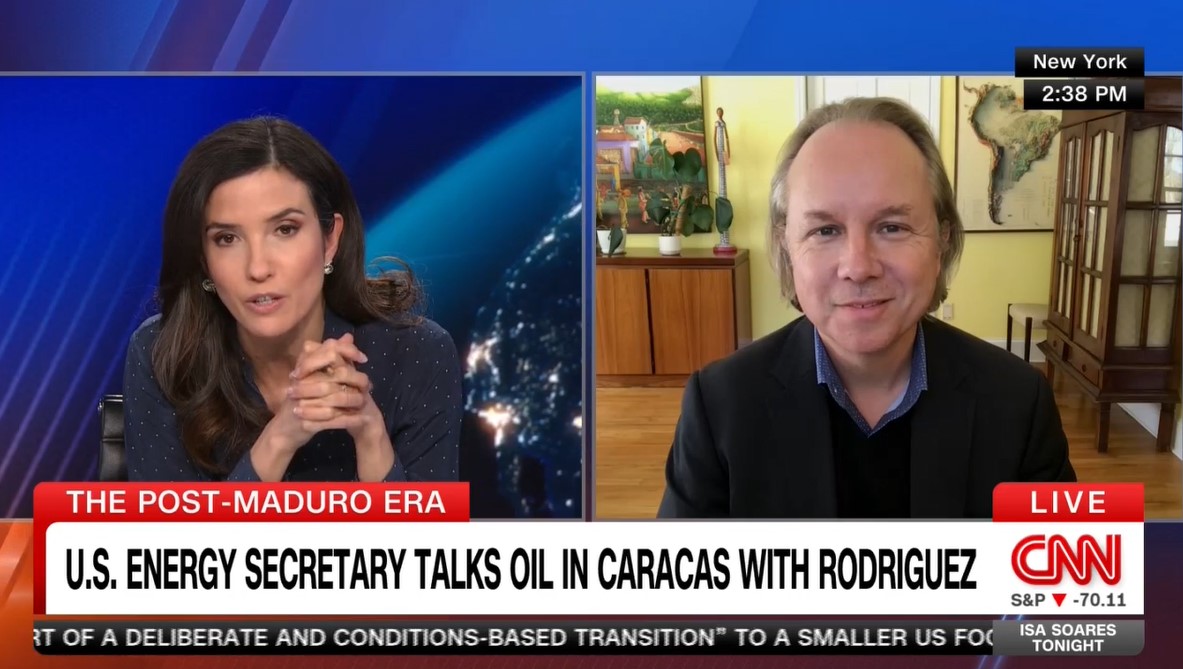Obama Should Shift Focus to Interdependence on Oil
Obama Should Shift Focus to Interdependence on Oil
"The Summit of the Americas provides a forum for Obama to shift focus from energy independence to a more practical and even a more desirable goal—energy interdependence," writes Lisa Viscidi in an op-ed for The Houston Chronicle. The original version of this article appears in the Spring 2009 issue of Americas Quarterly.
When President Obama attends the Summit of the Americas in Trinidad and Tobago this week, he will have an opportunity to address one of the most pressing issues on his policy agenda—energy.
Yet, as the economic crisis absorbs most of his administration’s attention, lower oil prices make alternative energy sources look costlier and U.S. oil demand remains fairly solid despite the recession, an unfortunate reality is setting in. Oil imports, like it or not, will remain a substantial part of the U.S.’s energy base for decades to come.
But there is also good news. The Summit of the Americas provides a forum for Obama to shift focus from energy independence to a more practical and even a more desirable goal—energy interdependence.
Domestic oil fields, including those that are currently off limits to drilling, could not add enough crude to U.S. production to cover the country’s total demand, but sufficient untapped reserves lie right within our own neighborhood. The Western Hemisphere, already the source of half of the U.S.’s crude oil imports, holds the potential to vastly increase oil production and boost exports to meet the energy needs of the world’s largest oil consumer.
Yet, those reserves have remained largely underexploited, due mainly to oil nationalism. Efforts by governments to maintain or expand state control over oil may make for popular politics, but they ultimately limit access to new technology and credit. The result is that governments kill the goose that lays the golden egg. Governments from Mexico to Venezuela have sidelined private investment without allocating proper funds and management capabilities to state oil companies to replace it.
Mexico’s state oil company Pemex, underfunded and technologically behind the times, has been unable to produce a single commercial barrel of oil from deep waters in its portion of the Gulf of Mexico, while drilling flourishes on the U.S. side. Yet private oil companies have been snubbed for more than 70 years due to a constitutional ban on foreign ownership of oil reserves.
Venezuela, having boosted the role of national oil company Petroleos de Venezuela at the expense of private participation while siphoning off huge portions of the state firm’s profits to fund social welfare programs, has seen a 27 percent drop in oil production since 1997.
Ecuador has also deterred private investment with fickle and exorbitant tax policies, and oil production there is also falling. Brazil may be moving in a similar direction.
The decline in oil production from the region’s major producers has allowed exporters from the Middle East and Africa to increase their share of the U.S. market, resulting in long-term revenue losses for many Latin American countries.
But this shift is far from inevitable, and the U.S. can contribute to reversing the trend. The Obama administration has vowed to take a more diplomatic approach to relations with fellow governments in the region, seeking partnerships rather than dictating terms. This is an important step toward establishing a framework for cooperation. More specifically, Obama should encourage commercial cooperation between state oil companies from the hemisphere and U.S. oil companies, which are key to exploiting the region’s untapped reserves.
The Summit of the Americas will provide the forum to initiate a dialogue about energy cooperation and pave the way for bilateral and multilateral accords for sharing technology, experience and commercial opportunities between energy companies from the U.S. and other nations participating in the summit.
But rather than focusing exclusively on alternative energy sources — which represent an important complement to fossil fuels but will not replace oil and gas in the foreseeable future—the U.S. must discuss a serious, broad energy policy with the region.
Ironically, the economic crisis and lower oil prices may present a unique opportunity. As oil-producing countries face budget constraints due to lower energy prices and thus depleting oil revenues, governments may be more inclined to invite private investment back in. Already Venezuela, which faces the most dire fiscal situation due to its dependence on oil revenues and profligate spending, has delayed this year’s exploration and production licensing round—likely because it is unable to attract investment under current onerous fiscal terms.
The U.S. should seize this rare opportunity of the shifting climate and the meeting of heads of state to start a much-needed dialogue with nationalist oil producers in order to advance energy interdependence in the Western Hemisphere.
Lisa Viscidi is Latin American Team Leader for Energy Intelligence Group. This op-ed is based on an article in the Spring 2009 issue of Americas Quarterly titled “Untapped.”








